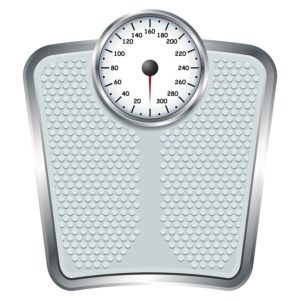Why is BMI Important to Heart Health?
For many people, their first concern about weight is about how they look and how their clothing fits. But, the truth is that maintaining a healthy weight is far more important for health reasons than it is for cosmetic reasons. In fact, obesity is now recognized as one of the major contributing factors for heart disease. If your parent has been assessed by a doctor for heart health, one of the things the doctor may have talked about is your parent’s BMI. If you’re wondering what BMI is and what it has to do with your parent’s heart health, keep reading!

Home Care Services Kirkland WA – Why is BMI Important to Heart Health?
What is BMI?
BMI stands for body mass index. For most people, BMI serves as an indicator of the amount of fat on their bodies in relationship to their height. BMI is used as a measurement tool to help assess whether a person’s weight is healthy. However, BMI may not be helpful in cases where a person is very fit and has dense muscle mass, but not much fat. It may also be inaccurate for older people who have lost muscle mass. For those people, other measurements of body fat are more helpful.
BMI is used in conjunction with waist circumference to determine a person’s risk for health problems. BMI score ranges are as follows:
- Obese: BMI of 30.0 or greater.
- Overweight: BMI of 25.0 to 29.9.
- Normal: BMI of 18.5 to 24.9.
- Underweight: BMI lower than 18.5.
Waist circumference is also important since it helps to determine where a person carries more fat. People who carry more fat around their waists instead of at their hips and thighs are at a higher risk for heart disease and other health problems.
How Does BMI Affect Heart Health?
BMI is important to heart health because it is an indicator of whether a person is carrying extra weight on their body. Extra weight causes the heart to work harder. Higher BMI is not only a risk factor for heart disease, but also for high blood pressure, high cholesterol, and type 2 diabetes.
Lowering BMI can also have the following benefits:
- Increased energy.
- Less pain in joints and muscles.
- Better sleep.
- Reduced risk of some forms of cancer.
How Can a Home Care Services Provider Help My Parent Reduce Their BMI?
A home care services provider hired through an agency can help your parent to reduce their BMI by helping them to make some lifestyle changes that will promote weight loss. A home care services provider can assist your parent with cooking healthy meals, monitor them while they exercise to ensure safety, and help keep them physically active through outings and other activities.
Sources:http://www.heart.org/HEARTORG/HealthyLiving/WeightManagement/BodyMassIndex/Body-Mass-Index-In-Adults-BMI-Calculator-for-Adults_UCM_307849_Article.jsp#.WUxRqGjyvIU
http://www.heart.org/HEARTORG/HealthyLiving/WeightManagement/BodyMassIndex/Frequently-Asked-Questions-FAQs-about-BMI_UCM_307892_Article.jsp#.WUxSc2jyvIU
https://www.nhlbi.nih.gov/health/educational/lose_wt/risk.htm
If you or an aging loved one are considering Home Care Services in Kirkland WA, contact the caring staff at Hospitality Home Care today. Call us at (206) 966-6552.
- Is Chocolate a Healthy Valentine’s Day Treat? - February 1, 2018
- Preventing Hip Fractures in Elders - January 24, 2018
- Ways to Work Out When It’s Too Cold to Go Outside - January 18, 2018